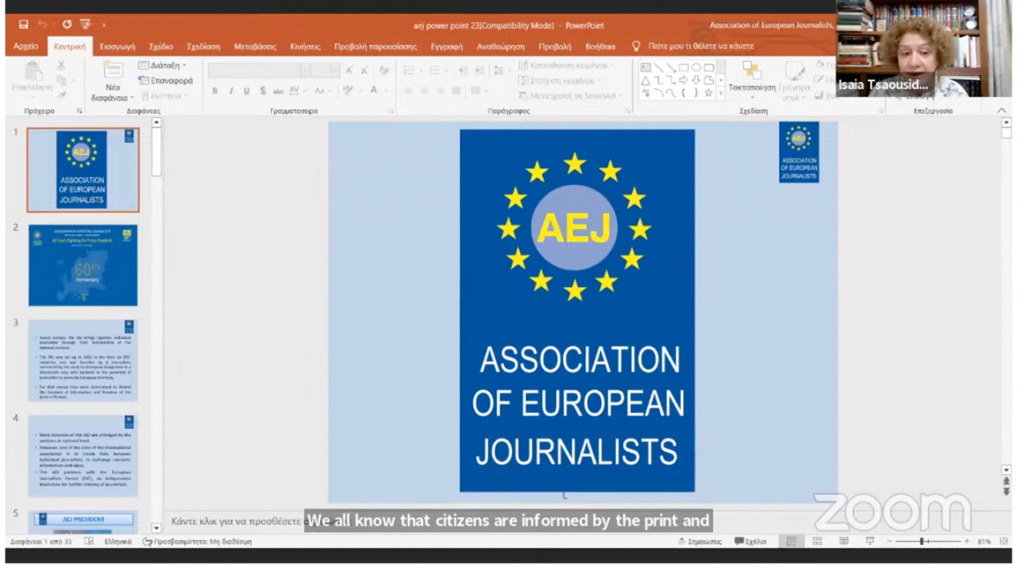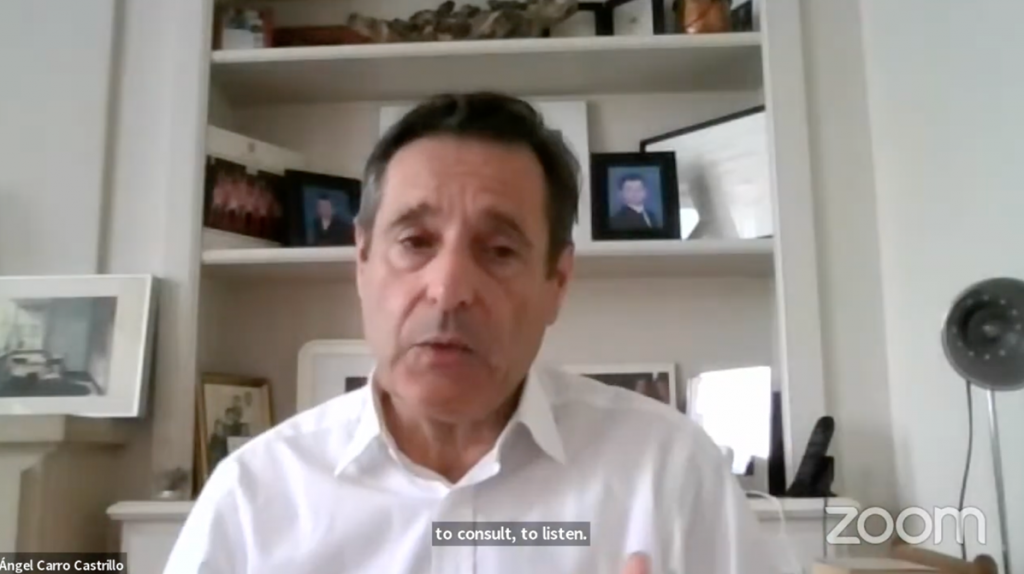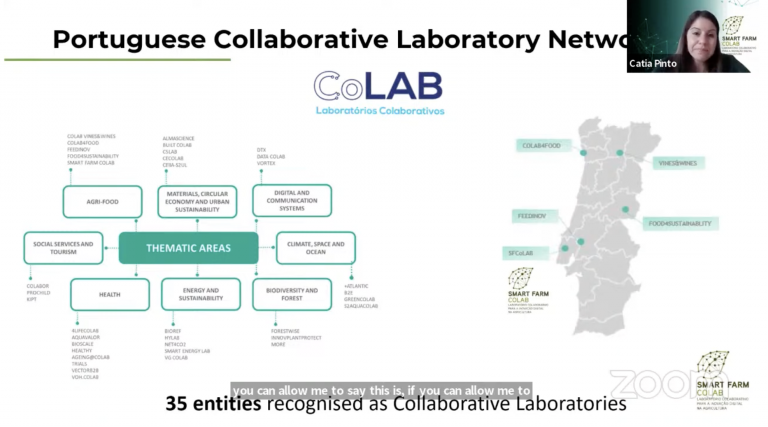- Adaptation to the challenges posed by climate change and European involvement in the circular economy were the topic of discussion.
- A total of 7 speakers participated in the penultimate day of the series “Opportunities for green, digital and European entrepreneurship”
28/06/2023, Brussels. Yesterday, Tuesday 27 June from 10:00 to 13:00 (CEST), the fourth of the five days of the online seminar organised by the 100 Women Plus project took place. The event, entitled “Opportunities of the green and sustainable economy”, focused on the challenges posed by climate change in various sectors (textiles, food, etc.), the EU mechanisms to address this issue and the opportunities offered by the circular economy to tackle this challenge.
Adrian Noheda, European Project Manager at Finnova, opened the conference by explaining the main points of the LIFE programme, the EU’s funding instrument for the environment and climate action. LIFE was created in 1992 and during these three decades, it has financed more than 5,500 projects that have contributed to the fight against climate change and transition. The programme currently has a budget of 5.4 billion euros (within the Multiannual Financial Framework 2021-2027) and finances more than 1,100 projects. In her speech, Noheda detailed the process for accessing these funds (the conditions for accessing the funds, the calendar for the call for proposals, the points system for evaluating the proposals) and, finally, he presented the European Commission’s Innovation Fund, programmes for financing innovative low-carbon technologies.
Pilar de Llamas, coordinator of the Nextextilegeneration initiative at Finnova, has taken the baton to explain the details of a project focused on promoting the virtues of the circular economy in the textile sector. Nextextilegeneration is aligned with the objectives set by the EU in the Sustainable and Circular Textiles Strategy, which advocates the application of stricter regulations, increasing the competitiveness of the sector and putting environmental protection and social rights at the forefront of business models. De Llamas closed her speech by naming different projects with the same objective as Nextextilegeneration, such as RReuse or Moda-R.
The next speaker was Laura Ros, European project assistant at Finnova, who told her testimony as a volunteer in the NGO Step Africa. The mission of this organisation is to contribute to international understanding and to provide its participants with intercultural experiences that they can acquire as a competence. Ros was part of the Home of Malaika activity, a centre located in Mianzini (Arusha, Tanzania) where women can receive business and sewing training that allows them to have a stable income. “It is a project that empowers women through entrepreneurship, supports cooperation and the use of recycled materials helps to make it a more circular process” concluded Ros.
Catia Pinto, executive director of Smart Farm Colab, presented the Smart Farm Collaborative Laboratory, an initiative that proposes solutions to the challenges of climate change, the digitisation of agriculture and the development of the circular economy adapted to small and medium-sized farms. It is a collaboration between 17 entities (municipalities, SMEs and research institutes) whose action is concentrated in the western region of Portugal, a national leader in the production of vegetables and wine. Pinto stressed that SFCOLAB wants to boost the digitalisation process to help the local population to use digital tools and as a method for the inclusion of women in the sector, “a sector that is still very masculinised”.
Helena Kyropoulos, as representative of the European Regional Cooperation Framework, focused her presentation on interaction, on econetworking. She also presented several proposals that her organisation is carrying out, presenting examples such as Greenland (a programme aimed at unemployed people who want to train in ecology) or CB Carbonfree (aimed at companies that want to get involved in the new holistic business mechanics).

Another speaker in this session was Isaia Tsaousidou, president of the Greek section of the European Association of Journalists. Tsaousidou reviewed the importance of freedom of the press, the actions that the organisation carries out and continued the second part of her speech by focusing on the link between journalism and climate change. “The role of the media is very important, communicating the facts related to global warming is of vital importance, and spreading the message that we must act before it is too late”, concluded the journalist. Not only through news, Tsaousidou added that the dissemination of other materials such as documentaries or the inclusion of experts in this field are very important for the citizen to have this information at their fingertips. Finally, she also stressed that the media do not share exclusively in this educational task, but that schools should take on this role to educate children about the effects of climate change.
The webinar was closed by Ángel Carro, green transition consultant and senior advisor for international relations, food systems and biodiversity at FIPRA. The keynote address focused on food security, an issue that has gained momentum due to the conflict in Ukraine and the increase in food costs it has entailed. Carro brought this example to show that food security is a crucial issue, and that it is important to ensure physical and economic access to food. He went on to highlight the importance of women in agriculture; although it is “a man’s world in Europe, we cannot forget that there are places such as Africa where the burden of food production falls on women”. To close her speech, Carro stressed the need to avoid food dependence on third parties, recommending that at least part of the local food should be sourced locally, in order to avoid possible food blockades and other damage that has been seen as a result of the conflict in Ukraine.

This was the summary of the third day of the 100 Women Plus webinar. Through the following link, it is possible to watch the event in its entirety: https://www.youtube.com/watch?v=HhPI6jLKOpQ&ab_channel=FINNOVA
Tomorrow, Wednesday 28 June from 10:00 (CEST), the fourth and penultimate day of the seminars will focus on the opportunities of the green and sustainable economy. If you would like to attend the event online, you can register via the following link: https://www.eventbrite.es/e/entradas-webinar-100-women-plusopportunities-for-green-and-digital-entrepreneurship-652677003487?aff=ebdssbdestsearch

